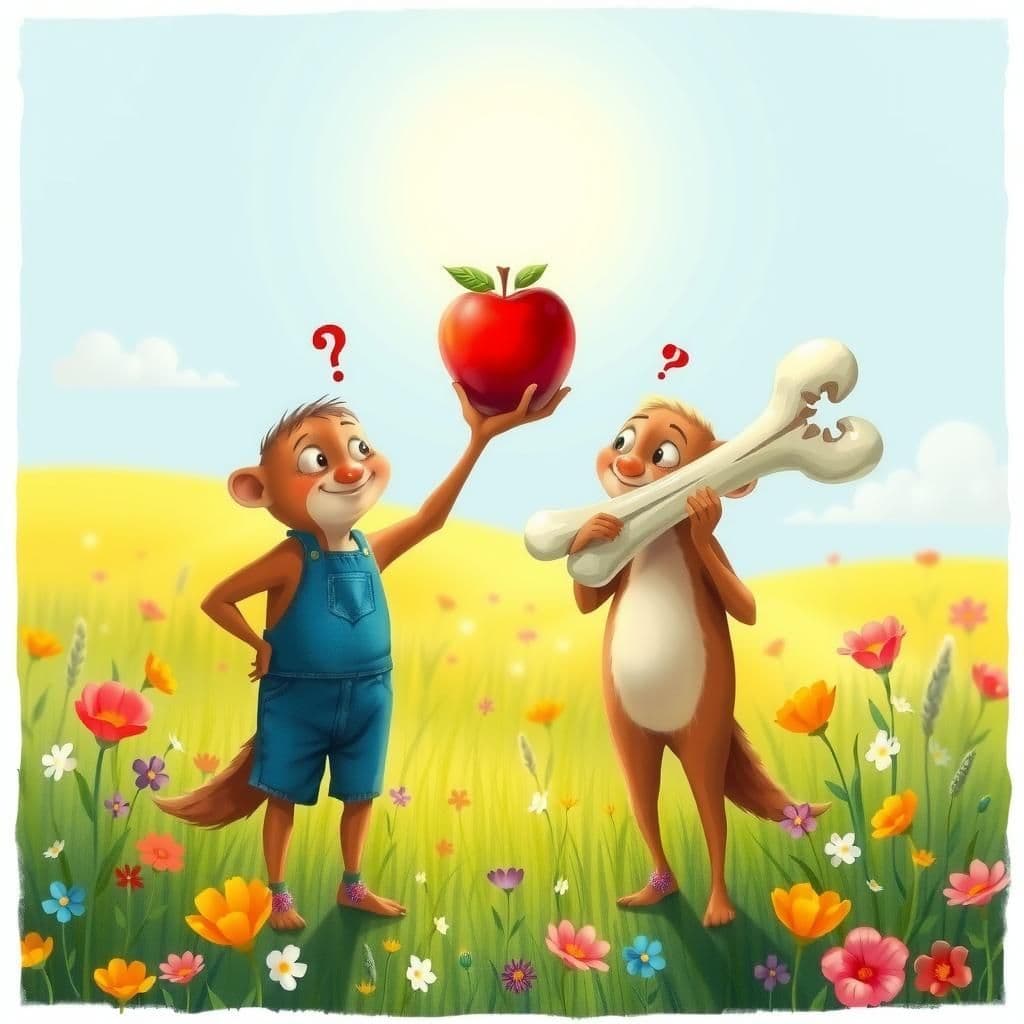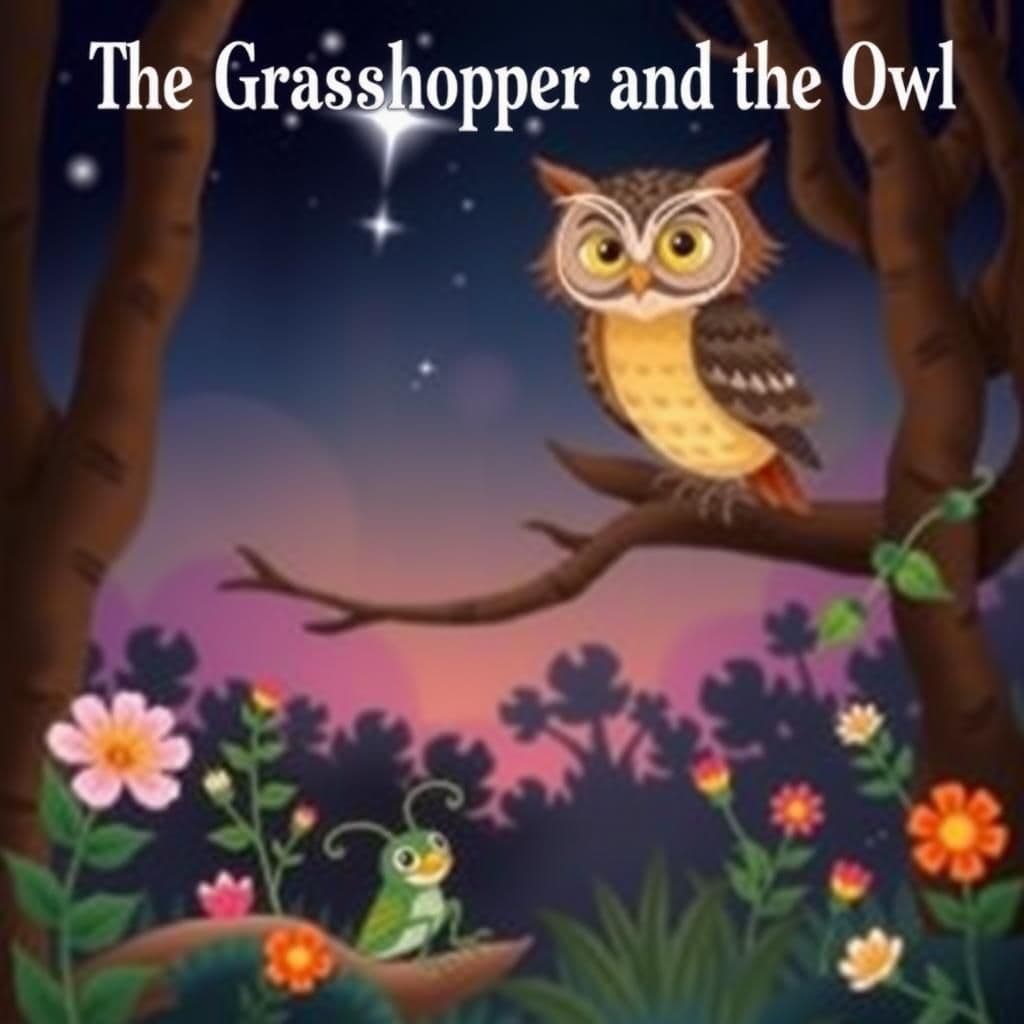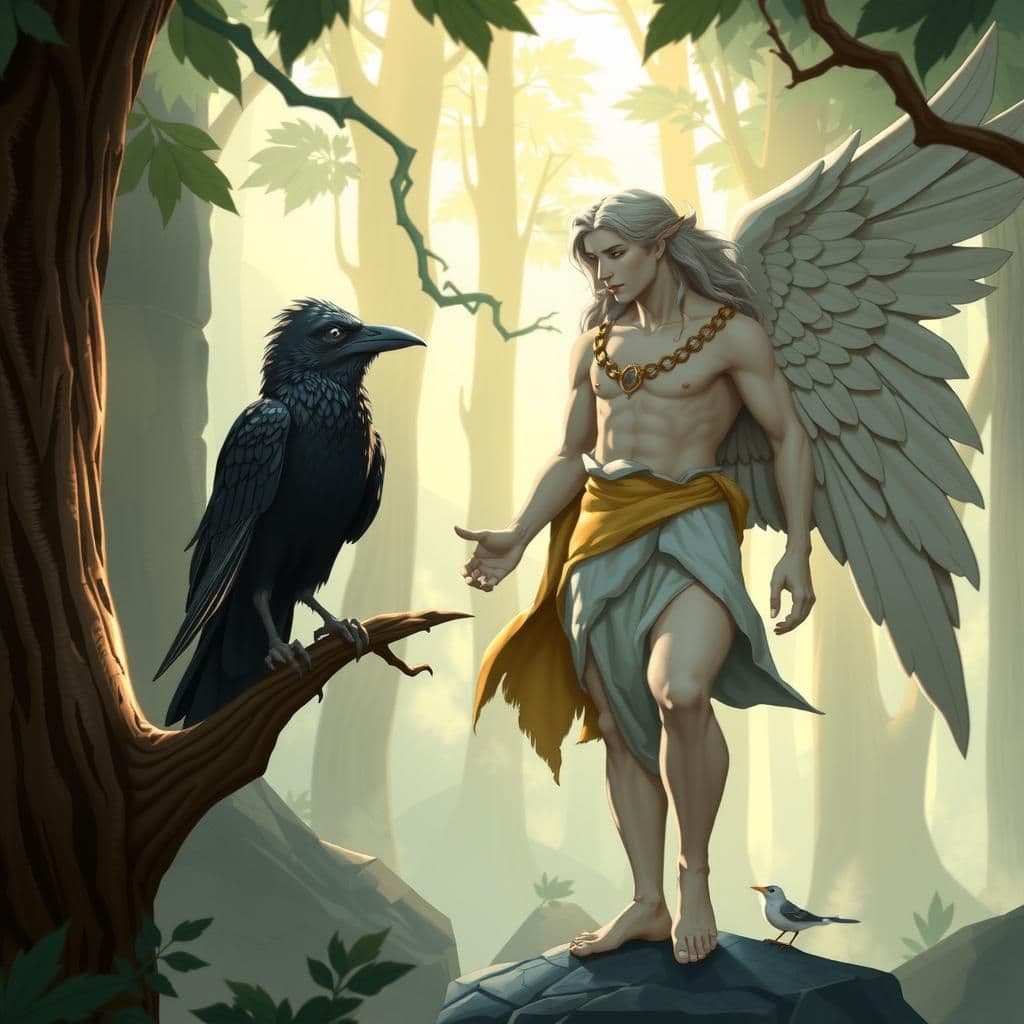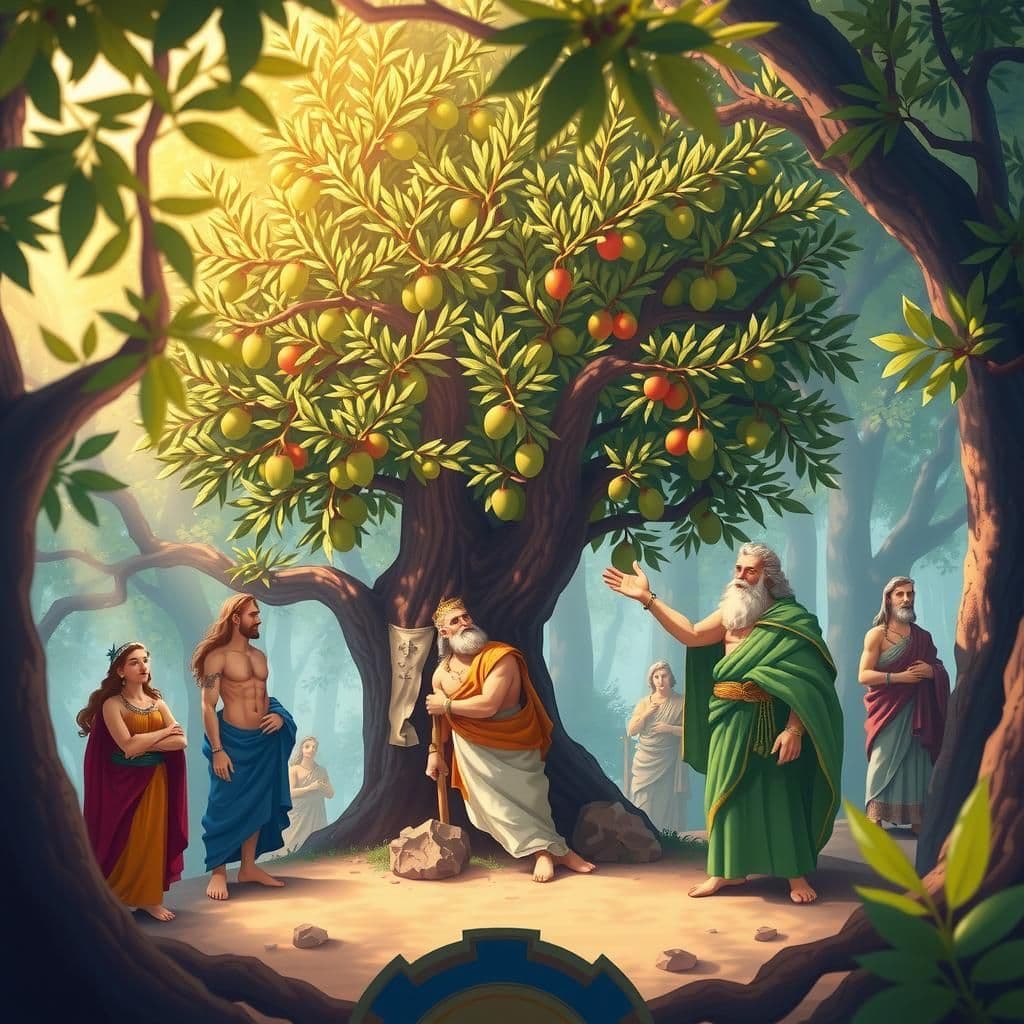The Two Poets
In "The Two Poets," a short moral tale for class 7, two poets argue over prizes from Apollo: an Apple symbolizing Art and a Bone representing Imagination. The First Poet, proud of his Apple, finds it inedible, while the Second Poet discovers his Bone is merely imaginary, illustrating the futility of their dispute over tangible versus intangible rewards. This meaningful story with moral teaches students about the value of both art and imagination, emphasizing that true worth often lies beyond physical prizes.

Reveal Moral
"The story illustrates that the pursuit of superficial rewards can lead to disappointment, while the value of imagination may lie beyond tangible results."
You May Also Like

The Grasshopper and the Owl
In "The Grasshopper and the Owl," a moral story for kids, an owl, disturbed by a grasshopper's incessant chirping, pleads with her to stop, but the grasshopper ignores her. Lured by the owl's flattery and a promise of nectar, the unsuspecting grasshopper eagerly approaches, only to be deceived and killed. This easy small story with moral teaches valuable lessons about the dangers of vanity and the consequences of ignoring wise counsel.

The Crow and Mercury
In the fable "The Crow and Mercury," a crow, ensnared and desperate, prays to Apollo for rescue, promising to offer frankincense at his shrine, but forgets his vow once freed. Caught again, he makes a similar promise to Mercury, who scolds him for betraying Apollo and questioning his loyalty. This short story with moral illustrates the consequences of failing to honor one's commitments, a theme found in many well-known moral stories.

The Trees Under the Protection of the Gods
In "The Trees Under the Protection of the Gods," various deities select trees for their protection, favoring those that do not bear fruit to avoid the appearance of greed. Minerva advocates for the fruitful olive, leading Jupiter to impart a thought-provoking moral: true glory lies in usefulness, not superficial honor. This short and sweet moral story highlights the importance of impact over appearance, making it a compelling lesson on value and purpose.
Quick Facts
- Age Group
- kidschildrenstory for class 2story for class 3story for class 4story for class 5
- Theme
- art vs. imaginationthe consequences of rivalrythe nature of value
- Characters
- Two PoetsApolloFirst PoetSecond Poet
Subscribe to Daily Stories
Get a new moral story in your inbox every day.